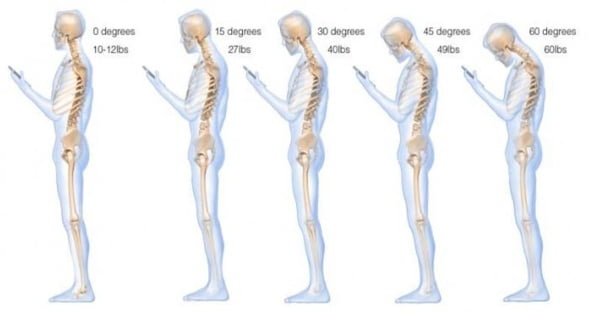We spend more and more time behind a monitor. When it comes to ergonomics, this is not without risk: worldwide, almost a quarter of the working population suffers from RSI complaints. What are the effects of screen work on your health? And how can you prevent overuse complaints? R-Go Tools found out for you.

Most common physical complaints
The risk of overburdening arises already after 4 hours of screen-work per day. The most common physical complaints are:
RSI complaints:
In screen work, RSI is mainly due to typing and mouse use. This causes repetitive strain on the tendons in your hand and wrist. Working too long in the same position behind a monitor also strains the neck and shoulder muscles. This is because increased muscle tension reduces blood flow.
Eye complaints:
Looking at a screen for a long time is ergonomically unwise. This is because you blink your eyes less. As a result, the eyes become tired, dry or burning. This results in sore eyes, headaches or blurred vision. In addition, layout, size, use of colour and legibility of the screen play a role in causing eye complaints.
Neck and back complaints:
Many people sit in a hunched posture in front of their monitor. Whereas in an upright posture, the spinal column bears the weight of the head. In a bent posture the neck muscles have to do it. The result? Overworked neck muscles, reduced blood flow, pain and even nerve pinching.

Tip: pay attention to the 5 work factors
Want to prevent overuse injuries and stay healthy at work? Then keep the following 5 work factors in mind:
Work tasks:
The less varied your work tasks, the more likely you are to suffer from RSI complaints. After all, variety ensures that you distribute the load over the entire body.
Working hours:
The number of hours of screen-work you do has a big influence on your risk of physical complaints. Insert short breaks to give your body a chance to recover.
Werkdruk:
De stress die komt kijken bij hoge werkdruk vraagt mentaal, maar ook fysiek veel van je lichaam. Zo veroorzaakt stress een hoog adrenalineniveau, wat vermoeidheid met zich meebrengt. Het verhoogt de spierspanning, wat leidt tot een slechte doorbloeding. Ten slotte leidt stress je af van lichaamssignalen bij beginnende overbelasting. Ongemerkt ga je zo snel over je grenzen.
Work pressure:
The stress involved in high work pressure demands a lot from your body, both mentally and physically. For instance, stress causes high adrenaline levels, which brings fatigue. It increases muscle tension, leading to poor circulation. Finally, stress distracts you from body signals at the onset of overexertion. Unnoticedly, you go over your limits so quickly.
Workstation:
An ergonomically designed workplace subconsciously encourages you to adopt a healthy posture while working at a computer screen. Make sure your monitor is adjustable with a monitor riser, for example, and consider using an ergonomic keyboard and a vertical mouse. It sounds obvious, but constantly paying attention to a good posture at work is something we often simply forget!
Want to know more?
Our white paper tells you everything you need to know about working healthily with a monitor from an ergonomic perspective. Download it below!


